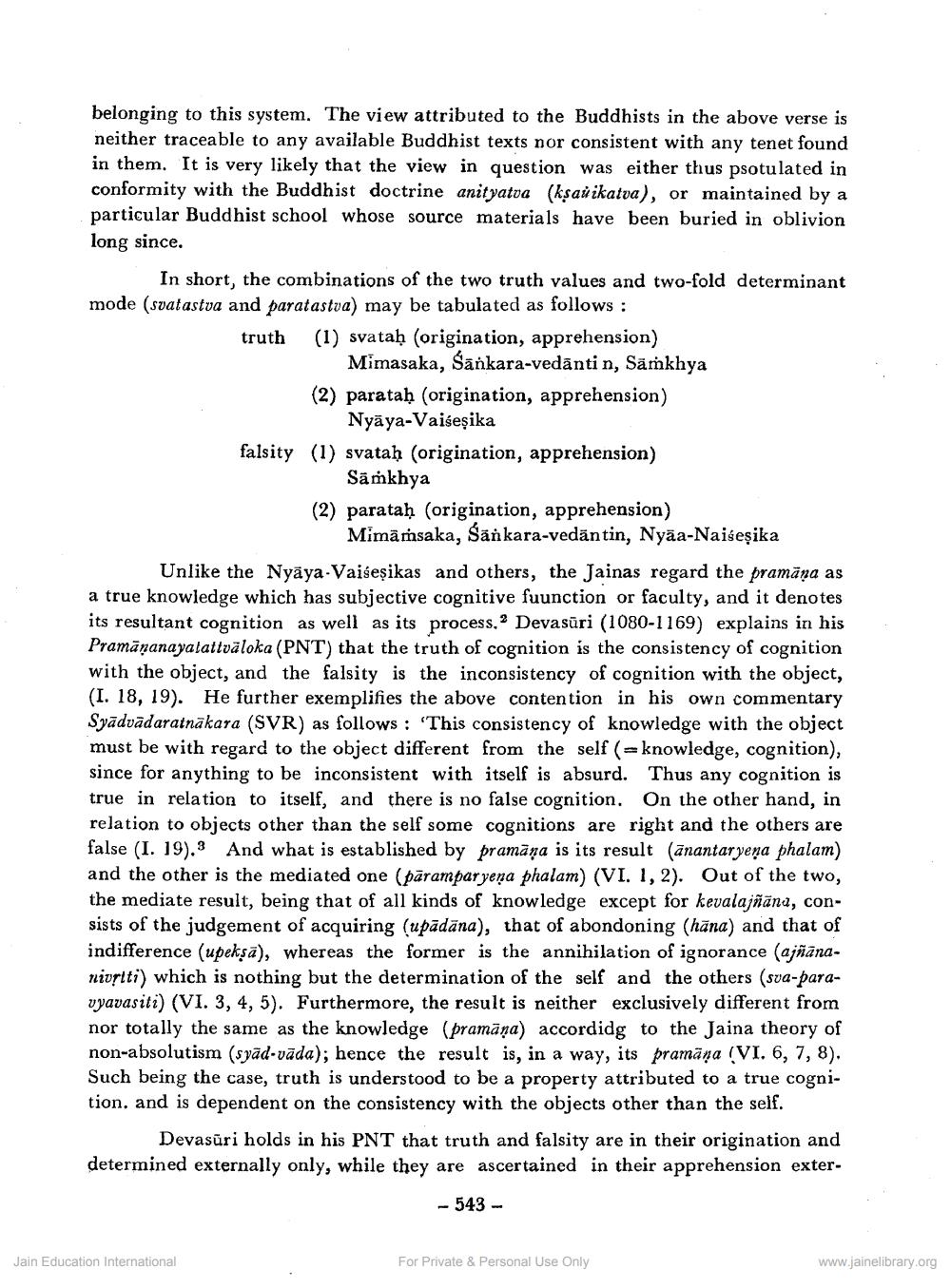Book Title: Some Remarks on The Pramanyavada of Jainism Author(s): Atsushi Uno Publisher: Z_Kailashchandra_Shastri_Abhinandan_Granth_012048.pdf View full book textPage 2
________________ belonging to this system. The view attributed to the Buddhists in the above verse is neither traceable to any available Buddhist texts nor consistent with any tenet found in them. It is very likely that the view in question was either thus psotulated in conformity with the Buddhist doctrine anityatva (ksai ikatva), or maintained by a particular Buddhist school whose source materials have been buried in oblivion long since. In short, the combinations of the two truth values and two-fold determinant mode (svatastva and paratastva) may be tabulated as follows : truth (1) svataḥ (origination, apprehension) Mimasaka, Sankara-vedāntin, Samkhya (2) paratah (origination, apprehension) Nyāya-Vaiseșika falsity (1) svatah (origination, apprehension) Sāṁkhya (2) paratah (origination, apprehension) Mimāṁsaka, Sănkara-vedāntin, Nyāa-Naiseşika Unlike the Nyāya.Vaiseșikas and others, the Jainas regard the pramāna as a true knowledge which has subjective cognitive fuunction or faculty, and it denotes its resultant cognition as well as its process, a Devasūri (1080-1169) explains in his Pramānanayatattväloka (PNT) that the truth of cognition is the consistency of cognition with the object, and the falsity is the inconsistency of cognition with the object, (I. 18, 19). He further exemplifies the above contention in his own commentary Syādvādaratnākara (SVR) as follows : This consistency of knowledge with the object must be with regard to the object different from the self (=knowledge, cognition), since for anything to be inconsistent with itself is absurd. Thus any cognition is true in relation to itself, and there is no false cognition. On the other hand, in relation to objects other than the self some cognitions are right and the others are false (I. 19).3 And what is established by pramāna is its result (anantaryena phalam) and the other is the mediated one (pārampar yeņa phalam) (VI. 1, 2). Out of the two, the mediate result, being that of all kinds of knowledge except for kevalajñāna, consists of the judgement of acquiring (upādāna), that of abondoning (hāna) and that of indifference (upeksā), whereas the former is the annihilation of ignorance (ajñānanivstti) which is nothing but the determination of the self and the others (sva-paravyavasiti) (VI. 3, 4, 5). Furthermore, the result is neither exclusively different from nor totally the same as the knowledge (pramāna) accordidg to the Jaina theory of non-absolutism (syād-vāda); hence the result is, in a way, its pramāņa (VI. 6, 7, 8). Such being the case, truth is understood to be a property attributed to a true cognition. and is dependent on the consistency with the objects other than the self. Devasūri holds in his PNT that truth and falsity are in their origination and determined externally only, while they are ascertained in their apprehension exter - 543 - Jain Education International For Private & Personal Use Only www.jainelibrary.orgPage Navigation
1 2 3 4 5 6 7
